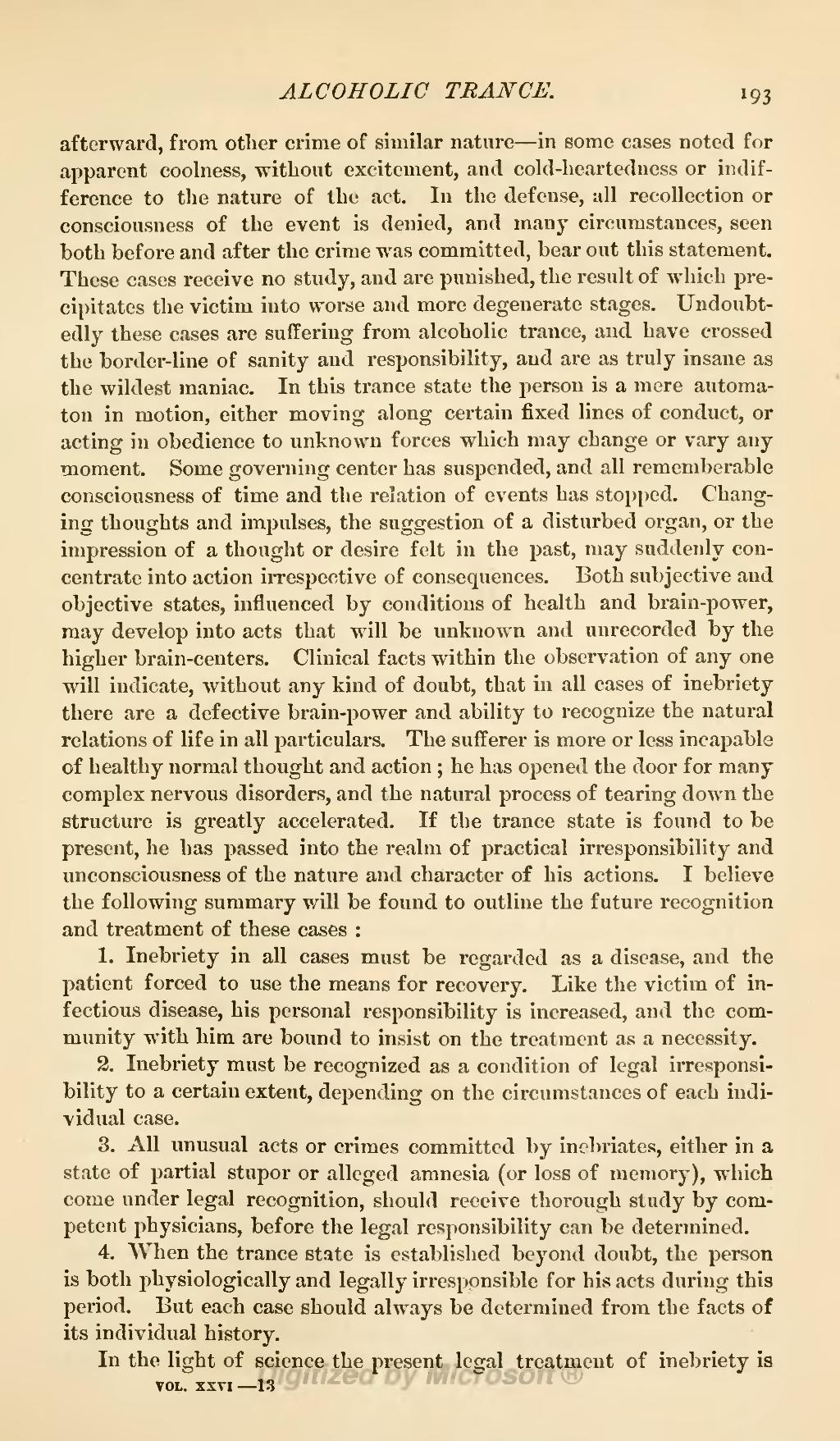afterward, from other crime of similar nature—in some cases noted for apparent coolness, without excitement, and cold-heartedness or indifference to the nature of the act. In the defense, all recollection or consciousness of the event is denied, and many circumstances, seen both before and after the crime was committed, bear out this statement. These cases receive no study, and are punished, the result of which precipitates the victim into worse and more degenerate stages. Undoubtedly these cases are suffering from alcoholic trance, and have crossed the border-line of sanity and responsibility, and are as truly insane as the wildest maniac. In this trance state the person is a mere automaton in motion, either moving along certain fixed lines of conduct, or acting in obedience to unknown forces which may change or vary any moment. Some governing center has suspended, and all rememberable consciousness of time and the relation of events has stopped. Changing thoughts and impulses, the suggestion of a disturbed organ, or the impression of a thought or desire felt in the past, may suddenly concentrate into action irrespective of consequences. Both subjective and objective states, influenced by conditions of health and brain-power, may develop into acts that will be unknown and unrecorded by the higher brain-centers. Clinical facts within the observation of any one will indicate, without any kind of doubt, that in all cases of inebriety there are a defective brain-power and ability to recognize the natural relations of life in all particulars. The sufferer is more or less incapable of healthy normal thought and action; he has opened the door for many complex nervous disorders, and the natural process of tearing down the structure is greatly accelerated. If the trance state is found to be present, he has passed into the realm of practical irresponsibility and unconsciousness of the nature and character of his actions. I believe the following summary will be found to outline the future recognition and treatment of these cases:
1. Inebriety in all cases must be regarded as a disease, and the patient forced to use the means for recovery. Like the victim of infectious disease, his personal responsibility is increased, and the community with him are bound to insist on the treatment as a necessity.
2. Inebriety must be recognized as a condition of legal irresponsibility to a certain extent, depending on the circumstances of each individual case.
3. All unusual acts or crimes committed by inebriates, either in a state of partial stupor or alleged amnesia (or loss of memory), which come under legal recognition, should receive thorough study by competent physicians, before the legal responsibility can be determined.
4. When the trance state is established beyond doubt, the person is both physiologically and legally irresponsible for his acts during this period. But each case should always be determined from the facts of its individual history.
In the light of science the present legal treatment of inebriety is

